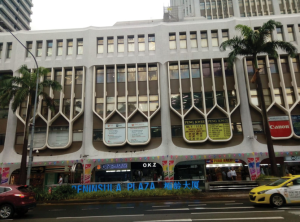Geographies of Transnational Domesticity: Migration Risks, Intersectional Disadvantage, and Mitigation Strategies by Foreign Domestic Workers from Myanmar
June 29, 2023

On 29 June, 2022, the Singapore Court of Appeal dismissed an appeal for a lighter sentence by a woman who was charged for fatally abusing her Burmese domestic helper. Abuse of domestic helpers is a glaring issue in Singapore, and domestic helpers from Myanmar are particularly vulnerable because Myanmar imposed a ban on domestic worker migration from 2014 to 2019. Although the ban was temporarily lifted, the 2021 military coup has set back the efforts to normalise such migration.
In ‘Geographies of Transnational Domesticity: Migration Risks, Intersectional Disadvantage, and Mitigation Strategies by Foreign Domestic Workers from Myanmar’ (The Professional Geographer, 2022), Professor Elaine Lynn-Ee Ho (NUS Geography and Asia Research Institute) and Assistant Professor Wen-Ching Ting (Chang Jung Christian University) conducted interviews with Burmese domestic helpers in Singapore and other stakeholders to better understand the risks they face when migrating from Myanmar to Singapore.
The authors identified three major risks Burmese workers encounter. At the individual level, Burmese domestic helpers often have to incur debts when they migrate to Singapore. At the household level, domestic workers have long working hours and are confined to their employers’ homes, sometimes without days off. At the national level, the Myanmar government’s ban of domestic helpers migration forces prospective domestic workers to seek risky, irregular migration routes, such as by obtaining forged certificates. Moreover, the minimum wage set for Burmese domestic helpers is significantly lower than that of Filipino and Indonesian workers, thus entrenching Singaporean employers’ perception that Burmese helpers are less well-trained.
Although the Burmese domestic helpers have various risk mitigation measures, the authors argue that they are not very effective. First, in Myanmar, prospective domestic workers could turn to their personal social networks to identify informal agents who can help them migrate. Yet, guidance offered by one’s personal social networks cannot fully circumvent the state-imposed restriction on migration. Second, at the predeparture stage, many Burmese workers undergo training by their informal brokers, so as to help them better meet the expectations of their Singaporean employers. However, the training often teaches the workers to be obedient and servile while interacting with their employers. Lastly, upon arrival in Singapore, the migrant helpers undergo a settling-in programme hosted by the Ministry of Manpower, which helps them develop new social networks with their fellow domestic helpers and know external organizations they can turn to for help. However, the opportunities to know these people and organizations are constrained by the workers’ long working hours.
Read the article here: https://doi.org/10.1080/00330124.2022.2081222
